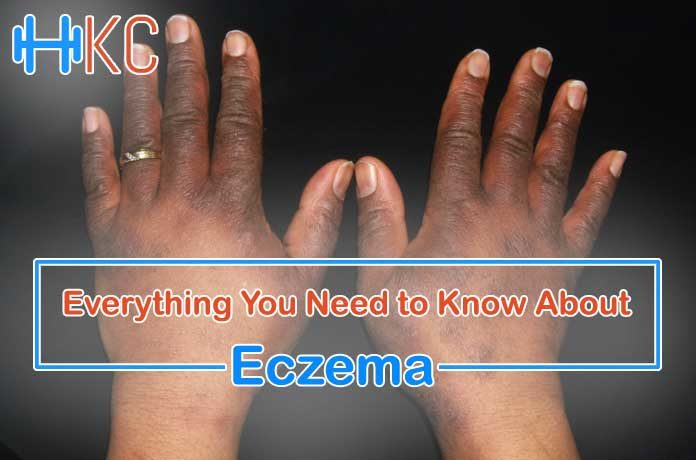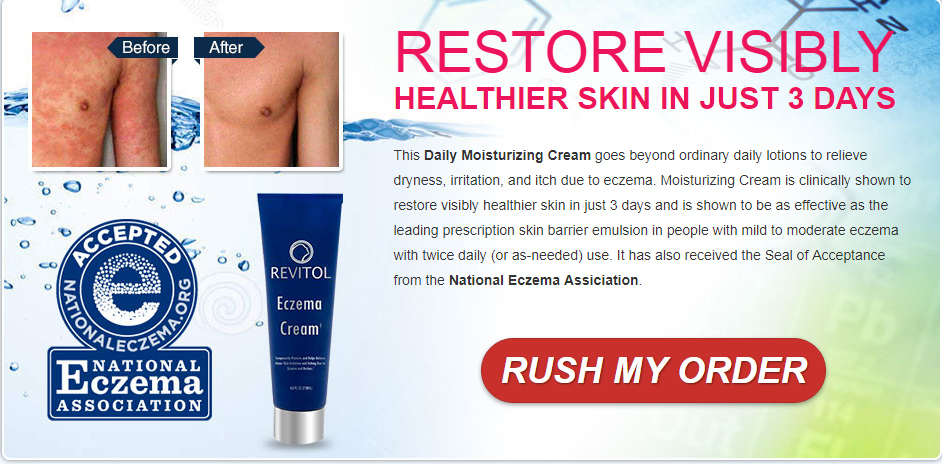Everything You Need to Know about Eczema
Have you had a patch of skin that’s been feeling particularly itchy lately? It could just be your average itch, but maybe you’ve noticed that it looks a bit redder or darker than the rest of your skin. If that seems to fit your experience, you may have eczema.
While the condition can be quite mild and even fade away over time, that’s not always the case for everyone. In fact, some people with eczema can end up with the condition for life. And this can increase their risk for developing allergic disorders and other health concerns like obesity and cardiovascular disease.
The reason why eczema might pose such risks is still unclear. However, there is enough knowledge out there to help you manage this skin condition. That’s where this article comes in! It’s here to help you learn everything there is to know about eczema, including how you can treat it.
What is eczema?
To start, let’s define what eczema is. There are a number of skin conditions out there that look similar enough to it, so to be certain that you have eczema, you’ll need to have a strong idea of what it is.
Eczema is not just a single skin condition. In fact, it is an umbrella term for a group of conditions that cause you to get inflamed, red, and itchy skin.
But it is more commonly used as a term for one particular skin condition: a topic dermatitis. This condition occurs when the skin barrier has been damaged, making the skin more sensitive and prone to infection and dryness.
How do you know if you have it?
Because eczema comprises a number of conditions that cause similar skin problems and it looks similar to other conditions like psoriasis, it can be tough to determine if you have it. But luckily, there are two main ways to see if you have it.
Signs and Symptoms
The first way to determine if you have eczema is through your signs and symptoms. So if you seem to be dealing with any of the following, then you could very well have eczema:
- Itchiness
- Skin redness
- Patches of skin that are dry, scaly, or crusted
- Thick or leathery skin from frequent scratching
- Bumps or fluid-filled blisters that might ooze when scratched
Different Types
Another way of unofficially diagnosing yourself with or without eczema is by determining if your skin condition sounds like it fits one of the following different types of eczema:
- Atopic dermatitis — This type of eczema generally starts during childhood and seems to occur in response to an allergen or external irritant. Children who get it might deal with dry, scaly skin; redness; itching; cracks behind their ears; and open, crusted, or oozing sores. As the condition is chronic and inflammatory, it might seem to improve at times and worse at others, never quite leaving the body.
- Contact dermatitis — Similar to atopic dermatitis, contact dermatitis seems to react to irritating substances or allergens. In response, people with the condition tend to get inflamed, burning, red, itchy skin around their hands or on the parts of their body that came into contact with the irritating source. Some of these irritating sources can be solvents, industrial chemicals, detergents, fumes, or tobacco smoke.
- Dyshidrotic eczema — More common in women than in men, this condition creates small, itchy blisters to form around the edges of fingers, toes, palms or the soles of the feet. These frustrating symptoms are generally triggered by stress, allergies, moist hands or feet, nickel exposure, cobalt, or chromium salts.
- Nummular eczema — Easily identified by the coin-shaped spots it creates, nummular eczema is much more distinct than most other forms of eczema. It can also be much more difficult to treat.
- Seborrheic dermatitis — Found wherever there are a lot of oil-producing glands on the body like the scalp and nose, a seborrheic dermatitis is typically a chronic form of eczema. It may come in the form of dry flakes like dandruff or yellow, greasy scales near swollen, reddened skin.
- Stasis dermatitis — Generally occurring when there’s an issue with blood flow and pressure, stasis dermatitis can cause swollen ankles, redness, itching, and pain. In harsher cases, it may even cause cracking or large ulcers and infection.
What causes it?
Unfortunately, it is still not yet clear what causes eczema. But the following factors may play a strong role in helping it develop or trigger:
- Having a family history of eczema, asthma, or allergies
- Dealing with stress
- Drying out and irritating skin in a low-humidity climate
- Making skin sweat and feel itchy in a high-humidity climate
- Being around allergens like pollen, pet dander, and foods
- Coming into contact with skin irritants like harsh soaps, wool, and tight clothing
Is it contagious?
Despite how intimidating eczema can appear to be, it is not a contagious disease. It’s a chronic, inflammatory condition that happens to your skin. But it doesn’t have to be something that haunts your nightmares. You just need to know how to treat it.
How can you treat it?
Whether you’re sure you have eczema or not by now, it’s time to head to your family doctor. They’ll be able to take your health concern and medical history into consideration to give you a professional diagnosis. And from there, they’ll be able to determine if you have eczema and what treatment is right for you.
If the doctor does confirm that you have eczema, then there you might want to consider the following treatments.
Medication
The first type of treatment to look at is medication. This type of treatment can help you keep eczema symptoms under control without any extra hassle.
One particular medication that might appeal to you is a topical treatment like Locoid® Lipocream. According to the National Eczema Association, this soothing cream, when applied to your skin, can minimize redness, inflammation, and itching, giving your skin a better chance to heal.
Like any prescription medication, it can be an expensive treatment to try. But if you ship it through a licensed and cheap pharmacy referral service website like RxConnected, you’ll pay a more affordable price for it.
Therapy
If your eczema is quite difficult to manage even with medication, then try wet-wrap therapy. Under this therapy, you’ll soak your skin in warm water for around 15 to 20 minutes and then pat it dry. Afterward, you’ll apply a wet piece of gauze or clothing to your eczema and wrap a dry material around it. If it ends up being a bit uncomfortable, you may end up adding a blanket over both materials for some extra coziness.
All of which should be done under the supervision of a health-care professional. That way, you can be sure the treatment will help instead of hinder your condition.
Is there anything more you need to know?
There are many more treatments available for eczema, and of course, there is always more medical research coming to light on conditions like eczema. But for the time being, this article should serve as a great basic guide on eczema and how you can handle it.
















